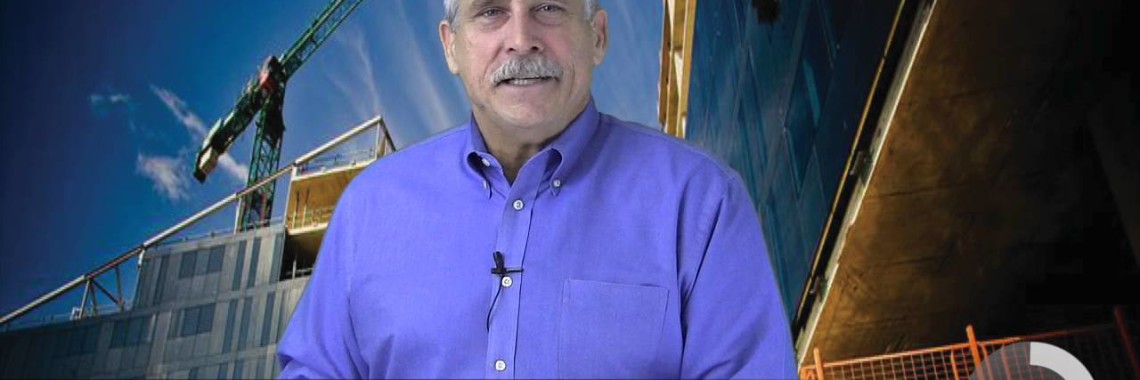Leading Seasoned Workers focuses on leading and sustaining experienced workers. These employees have the tools your company needs to thrive, and are often times impossible to replace. Learn how to effectively engage these workers and allow them to continue growing, for their own benefit and for your company!
[spreaker type=standard width=100% autoplay=false episode_id=8542196]
Transcript:
There is so much attention today on how to deal with our newest of workers, the “Millennial,” that many contractors have overlooked the sustaining of our more experienced workers, aka, the “Seasoned Worker.”
The Seasoned Worker is not so much known as an age group but more as a level of experience that is hard, sometimes impossible, to replace. My observation when working with construction companies of many different sizes is that once a worker has five, ten, fifteen or more years under their belt, the “seasoning” of knowledge, lessons learned, and “hard knocks,” has begun to refine their problem solving skills.
But working with the Seasoned Worker can have some challenges as well. For example, see if you have noticed any of the following with some of your more Seasoned Workers.
- May appear to be “know it all”
- Could be tough to teach new technique to
- Might be slow to train or coach new worker
- Has forgotten that they too were once “ignorant”
- Prefers to interact with other Seasoned Workers
- Can see the invisible “L” (for Loser) on new employee’s forehead
Now, the good news is that many of our Seasoned Workers are awesome in their work ethic, their ability to work well with the younger or less experienced worker, and their desire to do whatever is best for the company. BUT…for those who are a little more challenging, not super bad workers, but simply a little challenged, try working a few of the following techniques into your leadership efforts.
- Stay mindful of the Seasoned Worker’s value.
The Seasoned Worker brings their learning, their experiences, and their mind to you…don’t forget this nor take their value for granted. I’ve coached several owners through the years to hold their tongue when they get frustrated with that Seasoned Worker who makes a mistake. Like a little brother, or sister, it’s sometimes easy to take our a little more frustration on someone who should know better but still makes a mistake. Stay calm and address the Seasoned Worker personally.
- Remind the Seasoned Worker of their “construction pedigree.”
All I mean here is that even the Seasoned Worker can use a little reminder to “act their experience.” Even the Seasoned Worker can get frustrated, take short-cuts, or make a poor decision at the end of the day because they’re in a hurry to get off the site. Rather than barking profanities at your Seasoned Worker, remind them (calmly and personally whenever possible) that you are disappointed in their lack of presence of mind to handle the situation as a Seasoned Worker. Your point will be received…trust me!
- Coach the Seasoned Worker to be more strategic in their preparation.
One of the real benefits of experience is that it teaches us what works and more importantly, what does not work. What does not work costs money. While most construction workers, including owners, are tactical in approach, the more strategic effort made the more wise decisions are executed and the better productivity and profitability are realized. Coach your Seasoned Worker to slow down their planning, considering consequences that might take place, and to include past lessons learned before finalizing their planning and preparation. Such an effort will put more profitable performance in your Seasoned Worker and your company!
- “Tee up” your Seasoned Worker to share their years of accomplishment.
While not every Seasoned Worker is a “key note speaker,” we need our Seasoned Worker to be communicating their learned lessons, their secrets to better quality, and their preparation discipline. To “tee up” does not suggest that the Seasoned Worker will be giving speeches, but there are plenty of teaching outlets available for them to assist and educate our less experienced workers, such as at:
- Weekly/monthly project meetings
- Safety meetings…tail-gate talks
- AM/PM “Huddles” with other crew members
- Pre-Mid-Post Project debriefs
- Individual coaching moments during workday
- Formal mentoring opportunities with new workers
- Simply ask your Seasoned Worker for their assistance.
The fact is that we are losing more of the Seasoned Workers to retirement today. While they may still have five, ten, fifteen or more years left to work, ask them to assist in the training and molding of the next generation of construction workers. Not all of our Seasoned Workers are instinctively aware of what they could do to assist another worker. As crazy as that may seem to some of us, there are people who simply do what they are tasked and paid to do…and that’s about it. I term this sort of worker the “Fence-Sitter.” Yet, I have even found that the Fence-Sitter, if they are asked to help, usually respond nicely to taking another worker, less experienced, and showing them the ropes of their craft.
- Raise the image of the Seasoned Worker; do not put them down in front of others.
One of the only things you really can raise for the Seasoned Worker is their image and legacy. At this point in their tenure, they are probably some of our higher paid workers, people who have acquired a wealth of ideas through good and not so good experiences. Critical to their presence and effectiveness with less experienced workers is the fact that they “have been there” and have the credibility to tell stories, provide warnings, and to confirm well planned projects. While you may have to discipline a Seasoned Worker, do it privately, protecting the Seasoned Worker’s image among their peers.
The Seasoned Worker is special to every construction owner and leader. We need experienced people at every level but sadly we’re beginning to see much of this experience leaving our industry. Commit today to taking a renewed look at how you may be dealing with your Seasoned Workers…they may not be there tomorrow.
Here’s to more seasoning of experience for all of our workers!


 needs for a total safety program at your company, there are some key learning points that have been successfully implemented by many contractors that can bring value to your company.
needs for a total safety program at your company, there are some key learning points that have been successfully implemented by many contractors that can bring value to your company.
